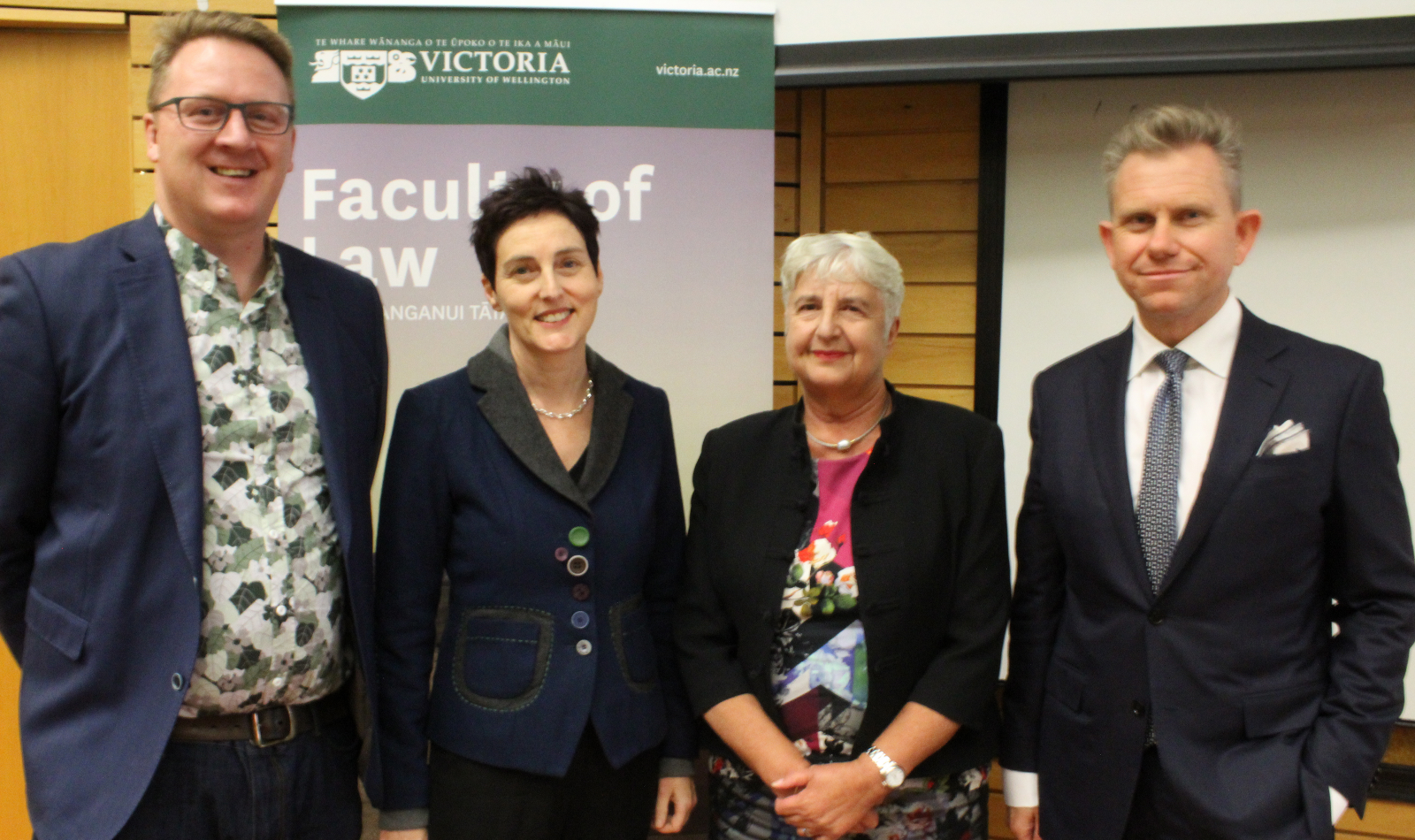Judicial checks on power vulnerable if not valued, says retiring Chief Justice
“Judicial supervision is a function that is vulnerable if it isn’t valued,” the Right Honourable Dame Sian Elias recently told a capacity crowd at Victoria University of Wellington.

Dame Sian was speaking at an event hosted by the University’s New Zealand Centre for Public Law, on the subject of “judicial review and constitutional balance”. Her expansive talk ranged from the weaknesses in our constitutional system, to her admiration for the common law method – despite the fact that it makes some people “very nervous”.
Dame Sian served as New Zealand’s Chief Justice for nearly 20 years, presiding in the Supreme Court since it was established in 2004. Her term ended this month, with new Chief Justice the Honourable Dame Helen Winkelmann taking office on 13 March.
In introducing Dame Sian, Professor Claudia Geiringer, Co-Director of the New Zealand Centre for Public Law, described her as “one of New Zealand’s most eminent jurists” and “a shining trail-blazer for women”. Professor Geiringer expressed appreciation for “the leadership of the profession Dame Sian has shown during a truly inspirational career.”
A weak but essential safety net
Dame Sian said she didn’t regard courts, or judicial review, or other judicial processes as being at the centre of the constitution, saying they were not “the principal bulwark against abuse of power.” She described judicial check as only “auxiliary protection in a constitutional order that’s working properly – and it is weak protection”. However, despite being “weak, and peripheral to much of what is done, it is an essential safety net,” she said.
“The vulnerability in a constitutional system like ours comes in part from legislation which excludes or manages the jurisdiction of the courts, and there’s certainly been a renewed enthusiasm for such legislation in recent years. Such privative clauses, as well as earlier exclusions such as in employment matters and arbitrations, create asymmetry in the legal order that I think will need to be reconsidered from time to time.”
It’s important to keep talking about the constitutional role of the judiciary in checking power, she said. “Like other aspects of our opaque constitution, it needs to be understood and valued by all in our society if we aren’t to sleepwalk into its erosion.”
Supervising power
While noting that, “It might be a bit bold or churlish at a lecture hosted by the New Zealand Centre for Public Law to say so”, Dame Sian emphasised that judicial supervision covers the exercise of both public and private power.
“Judicial review, and the obligations of the courts to maintain the rule of law, are not confined to supervision of the actions of government authorities. They are concerned not only with public power, although that is a common misconception,” she said. “The dispersal through privatisation of public power, and the great powers now exercised by private bodies and individuals in an era of big data, may make it important to reconnect judicial responsibility with the broader conception of the rule of law and what is constitutional.”
A method of change
Dame Sian also warned of “the pitfalls in judicial exposition of constitutional fundamentals,” particularly in a system like New Zealand’s, which does not have a single constitutional document. This means “You have to work hard at understanding and explaining the constitution, and it is inherently contested,” she said.
She described herself as a believer in the value of the common law method, in which the reasoning behind decisions “must convince or else [the decision] won’t long endure”. She described the common law as a method of change. “It’s a form of institutionalised discourse, or method of argumentation, and its arguments survive only until defeated by a better – usually responding to different social conditions and developments in human knowledge.”
This makes the common law method “intensely contextual”. But despite making “those who long for certainty, and who like the security of rules, very nervous,” this is part of the strength of the common law, she said.
“The virtue of public reasoning in court judgments is that it lays out all sides of the matter. At times, such public reasoning has slowed down significant controversies that might have been destructive of social harmony and allowed the political processes to catch up.”
However, she warned, “the common law methodology must be careful, incremental, and modest, and if that methodology is not adhered to there is trouble”.
The New Zealand Centre for Public Law hosts a range of events throughout the year, many of which are free and open to the public. You can sign up for event invitations here.
